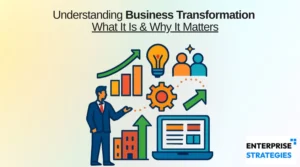What is the initial thought any leader or core team has when discussing the possibilities of an enterprise social network? “Let’s do a pilot first.”
Several arguments can be made in support of doing pilots inside organizations:
- offering colleagues a chance to experiment with features and functionality
- observing how tools can be adapted into current workflows
- evaluating overall performance to determine if capabilities can support business operations
Pilots provide a very controlled environment where leadership can observe how tools and technologies perform without a significant investment. In most cases, pilots are done with the expectation that success will result in a full-scale rollout at a later date.
However, many enterprise social networks are struggling to get off of the ground because of ineffective and unrealistic pilots. Therefore, why are pilots designed to prove the need for enterprise social failing?
[vc_separator type=’transparent’ position=’center’ color=” thickness=’5′ up=” down=”]
Not The Entire Audience
[vc_separator type=’transparent’ position=’center’ color=” thickness=’5′ up=” down=”]
Pilots are designed to test enterprise social functionality in small groups of users, often done by project, team, or even volunteers. Participants can be selected because of their roles and responsibilities, geographical location, or familiarity with similar tools. Unfortunately, these small audiences selected for pilots do not often accurately reflect the diverse workforce at corporations. Many uncontrollable factors can affect audiences at this level, including timing, workload, market conditions, etc. One department may use technology differently from another, one may be faster at adopting new processes than others, and so on. It is impossible to accurately predict the actual potential value of an entire organization using enterprise social tools from a small cross-section.
[vc_separator type=’transparent’ position=’center’ color=” thickness=’10’ up=” down=”]
 Free Download: Top 5 Reasons Enterprise Social Initiatives Fail
Free Download: Top 5 Reasons Enterprise Social Initiatives Fail
[vc_separator type=’transparent’ position=’center’ color=” thickness=’10’ up=” down=”]
In this download, you will find the following information:
- The most common reasons enterprise social initiatives fail and what you can do to avoid them
- Enterprise social initiative best practices
- What we have learned from delivering several successful enterprise social initiatives at our clients
[vc_separator type=’transparent’ position=’center’ color=” thickness=’10’ up=” down=”]
[button size=” style=” text=’Get Your Free Download’ icon=” icon_color=” link=’/free-e-book-top-5-reasons-social-enterprises-fail/’ target=’_self’ color=” hover_color=” border_color=” hover_border_color=” background_color=” hover_background_color=” font_style=” font_weight=” text_align=” margin=”]
[vc_separator type=’transparent’ position=’center’ color=” thickness=’30’ up=” down=”]
Unrealistic Time Expectations
[vc_separator type=’transparent’ position=’center’ color=” thickness=’5′ up=” down=”]
Many pilots also do not take into account the limited availability of participating employees. It’s no secret that employees today are frequently overwhelmed by their normal responsibilities. Even if they volunteer for preliminary trials (which could also skew the audience demographics), pilots are added on top of their daily performance expectations. As a result, they are only able to dedicate short periods of time to exploring the new technology–or become even more stressed while doing so because of lost time. Though enterprise social networks are designed to increase efficiency, pilots can stretch participants so thin that their performance suffers and excitement over social tools wanes.
[vc_separator type=’transparent’ position=’center’ color=” thickness=’10’ up=” down=”]
Misaligned Business Focus
[vc_separator type=’transparent’ position=’center’ color=” thickness=’5′ up=” down=”]
Because of restricted participants and time constraints, pilots may not be the ideal approach for your business or company. (Yes, you read that right.) Introducing pilots also implies executive leadership is not entirely sold on the success of enterprise social networks and that new technology could be rejected–implications that could be major setbacks. In addition, pilots are generally for a short period of time, not enough to see any type of long-term impact before making a decision. For businesses that are in full support of enterprise social, it makes more sense to move away from starting with a pilot to an actual phased rollout plan. With current research emphasizing themes of digital transformation, organizations that have executive endorsement, resources, and timeline ready for a full-scale rollout will be at a major advantage over those who waste valuable time, people, and resources on unnecessary pilots.
For some industries, pilots of enterprise social networks might be necessary because of corporate culture or regulations. If preliminary tests are needed, those planning the pilots should try to have as diverse a participant base as possible and be cognizant of time and tailor overall expectations. Many companies are recognizing the need to adapt to changing digital trends quickly, so if your organization has the support and resources, accelerate up the process by skipping a pilot altogether. At best, pilots will show what all research has proven–enterprise social networks work and help people work better. At worst, pilots will derail your efforts for progress–and possibly cause you to be passed up by your competition.
[vc_separator type=’transparent’ position=’center’ color=” thickness=’5′ up=” down=”]
To see previous posts in the series 5 Reason Enterprise Social Initiatives Fail click below:
Why Enterprise Social Network Pilots Don’t Take Flight
Context, Key To Enterprise Social Success (a.k.a. Why most social initiatives fail)
Show Me The Money: One Reason For Enterprise Social Failure
The Importance Of An Enterprise Social Strategy: Are You Driving Blind Through Social?
The Missing Part Of Your Enterprise Social Network: Executive Support




